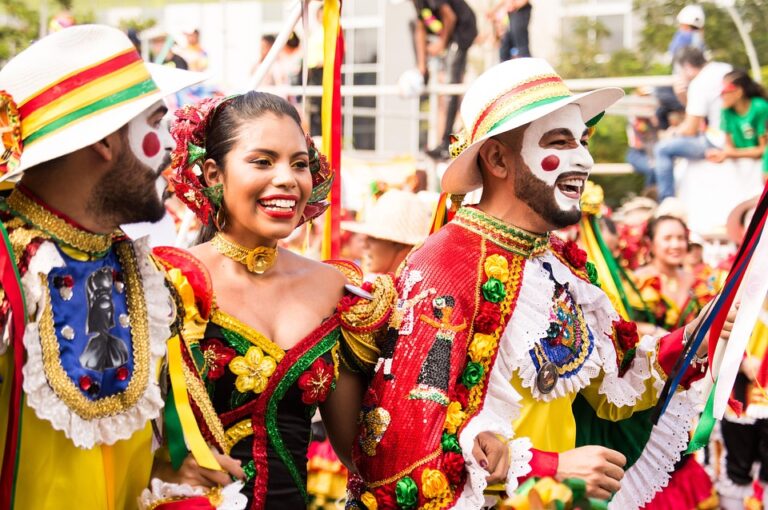The Role of Sports in Shaping National and Cultural Identities
Sports are more than just games; they embody the history, culture, and spirit of nations. They influence societal values, provoke emotions, and promote a sense of community. Through sports, individuals can connect with their heritage and identity, making them powerful agents in shaping national and cultural identities.
Understanding Cultural Experiences Through Sports
Cultural experiences play a critical role in how societies perceive themselves and others. Sports provide a unique platform to express cultural identities and can serve as a catalyst for national pride.
The Unifying Force of Sports
When teams compete on international stages, such as in the Olympics or the FIFA World Cup, they evoke patriotism and unite diverse populations. For instance, during the 2016 Olympics, 87% of Americans reported feeling proud of their country due to the athletes’ achievements. This pride transcends regional and demographic differences, allowing collective national identity to strengthen.
Examples of Cultural Identity in Sports
Consider the case of Brazil, where football (soccer) is not just a sport but a way of life that dramatically shapes the country’s cultural fabric. Street games, local leagues, and national successes in football have created an environment that enhances Brazil’s global cultural image, blending joy, rhythm, and communal spirit.
The Influence of Sports on National Identity
Sports not only unify but also serve as a reflection of a nation’s values and struggles. For example, during apartheid in South Africa, the national rugby team became a symbol of hope and unity, especially after their victory in the 1995 Rugby World Cup. Led by captain Francois Pienaar and supported by Nelson Mandela, this event marked the beginning of a new chapter in South African history, illustrating how sports can bridge divides.
Gender and Sports: A Growing Cultural Experience
Gender representation in sports has also evolved, contributing to cultural experiences and identity formation. Increasing visibility of women in sports has altered perceptions and showcased female empowerment globally. Research from the Women’s Sports Foundation indicates that girls who engage in sports are more likely to develop leadership skills and exhibit higher confidence levels, which contributes substantially to cultural evolution.
The Economic Impact of Sports on Cultural Identities
Sports are not just about passion; they drive significant economic activity. The global sports industry was valued at approximately $620 billion in 2021, with predictions to exceed $800 billion by 2025. This economic influence can reshape cultural experiences by fostering investment in local services, tourism, and youth programs that engage communities and generate pride.
Sports Tourism: A Cultural Experience
Countries that host international sports tournaments, such as the World Cup or the Olympics, often experience a surge in tourism, showcasing their cultural heritage to the world. For instance, the 2016 Rio Olympics attracted over 1.2 million visitors, who were exposed to Brazil’s diverse customs, cuisine, and traditions—creating lasting cultural impressions.
Bridging Global Cultures Through Sports
In an increasingly globalized world, sports have transcended borders, creating networks of cultural experiences. Events like the Commonwealth Games and the Olympics bring together participants from diverse backgrounds, promoting intercultural dialogue and understanding.
Example of Cultural Exchange
For example, the NBA’s Basketball Without Borders program engages young athletes from various countries, promoting skills development along with cultural exchange. Through such initiatives, sports can foster mutual respect and understanding among different national identities.
Conclusion: Celebrating the Cultural Experiences of Sports
In summary, sports act as a dynamic vehicle for shaping national and cultural identities. They unite communities, foster national pride, and create economic opportunities that are essential to cultural experiences. As the global sports landscape continues to evolve, so will the intersection between sports and identity, reminding us of the powerful role sports play in capturing the spirit of cultures around the world.
For readers interested in exploring more about sports, consider checking out our articles on The Evolution of Women in Sports and How Sports Drive Economic Growth. To dive deeper into the significance of sports in cultural contexts, visit The Impact of Global Sports Diplomacy.
Additionally, for further insights, explore The Role of Sports in Society, a reputable external resource discussing this important subject.

Alt Text: Sports Gathering Celebrating Cultural Experiences

Alt Text: Youth Football League Promoting Cultural Experiences
By recognizing the impact of sports on cultural experiences, we embrace the essence of community, pride, and identity that they inspire across the globe.


